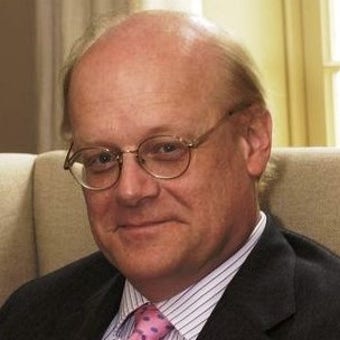Speaker of the House Nancy Pelosi startled journalists at her weekly news conference on Thursday by her advice that Democratic presidential candidate Joe Biden shouldn’t bother publicly debating President Donald Trump.
Her rationale for this advice was more than a little disingenuous. “I do not think the president of the United States has comported himself in a way that (resembles) anybody who has any association with truth, evidence, data and facts,” Pelosi claimed, as though Trump was beneath the Democratic nominee’s contempt. “I wouldn’t legitimize a conversation with him, nor a debate in terms of the presidency of the United States.”
Biden himself has indicated that he’ll go forward with three debates with the president, even though Biden agrees that Trump “has a somewhat pathological tendency not to tell the truth.” But maybe the speaker has a point – not so much about Trump or Biden, as about presidential debates.
ADRIANA COHEN: BIDEN UNFIT TO BE PRESIDENT IF HE WON'T DEBATE TRUMP
The ideal of political debating has always been the seven debates held in the summer and fall of 1858 between Illinois U.S. Sen. Stephen A. Douglas and his challenger, a second-tier Republican lawyer named Abraham Lincoln. Ironically, these weren’t presidential debates. Douglas and Lincoln would face each other for the presidency in 1860, but in 1858, the prize they were striving for was Douglas’ U.S. Senate seat.
Nevertheless, the Lincoln-Douglas debates were probably the most important political face-off in American history. Although Douglas began the debates as the most famous politician in America, Lincoln’s relentlessly logical hammering at Douglas’ feeble justifications for legalized slavery made him nationally famous. For the great Harry Jaffa, whose “Crisis of the House Divided” still stands after 60 years as the defining interpretation of the political theory of the debates, the Lincoln-Douglas debates are the closest approximation in American history to Plato’s “Republic.”
More from Opinion
But their debates looked nothing like what we have come to expect from modern presidential debates. All seven of their encounters were held in the open air, before crowds that numbered as large as 25,000 and speaking from platforms that still smelled of fresh-sawn lumber.
Each debate began with an hour-long speech by one candidate (Lincoln and Douglas took turns as the lead-off), an hour-and-half response from his opponent, and a half-hour reply from the first speaker. And all seven debates had only one topic – slavery.
Both Lincoln and Douglas traded accusations, denials and sarcasm. Both fended off catcalls and heckling from the crowds. Douglas was so infuriated at the interruptions that he shook his fist at audiences, roaring, “I know that the shoe is pinching you. I am clinching Lincoln now and you are scared to death for the result. ... I have seen your mobs before, and defy your wrath.”
There were brass bands, noisy parades and insulting slogans on banners stretched across buildings. There were also no moderators, and no panels of journalists posing questions or checking facts.
Still, what emerged from these debates was the most thorough working-out of the slavery issue Americans had ever heard. What, Lincoln asked in the last debate, is “the real issue” in slavery? “It is the eternal struggle between these two principles right and wrong throughout the world. … No matter in what shape it comes, whether from the mouth of a king who seeks to bestride the people of his own nation and live by the fruit of their labor, or from one race of men as an apology for enslaving another race, it is the same tyrannical principle.”
Even with the creation of a federal Commission on Presidential Debates in 1987, the quality of presidential debating has gone nowhere but downward.
Curiously, no one suggested a second round of debates when, two years later, Lincoln and Douglas faced each other for the presidency. Not until 1960 did presidential candidates face each other as debaters, when Richard Nixon and John F. Kennedy traded verbal blows on national television.
But the Nixon-Kennedy debates looked surprisingly little like Lincoln-Douglas. The 1960 debates were not open-air affairs, and they had no audiences. Squeezed into studios and limited by public-relations staffers to an eight-minute presentation and a two-and-a-half-minute rejoinder, neither candidate had time to develop ideas in any depth, much less anything that matched the eloquence of Lincoln. The biggest impact made by the debates came from the telegenic image of Kennedy and the five-o’clock shadow of Nixon. Not surprisingly, no further presidential debates occurred until 1976.
Even with the creation of a federal Commission on Presidential Debates in 1987, the quality of presidential debating has gone nowhere but downward. Over the last 20 years, presidential debates have come increasingly to resemble a game show, controlled by journalist-questioners whose chief goal seems to be catching a candidate in some fatal gotcha.
What if we wanted Lincoln-Douglas again? We could do it more easily than it seems.
We could get the debates out of the television studios and into an open-air venue – even a stadium. We could make the candidates speak, in long and detailed form, to us and to each other. We could require the candidates to take turns at a single lectern, not from dueling rostrums. Ironically, we do most of these things at the national nominating conventions, and no one seems to tire of it. Democracy just might become interesting once again.
CLICK HERE TO GET THE OPINION NEWSLETTER
It’s not likely that Biden will take Pelosi’s advice. There have been too many questions raised about the former vice president’s mental acuity for him to take a pass on debating Trump without it looking like a fatal admission of inability to function under stress.
But it might be worth looking again at how we do the business of presidential debating – if not for Biden’s sake, then for the sake of real democracy.









































